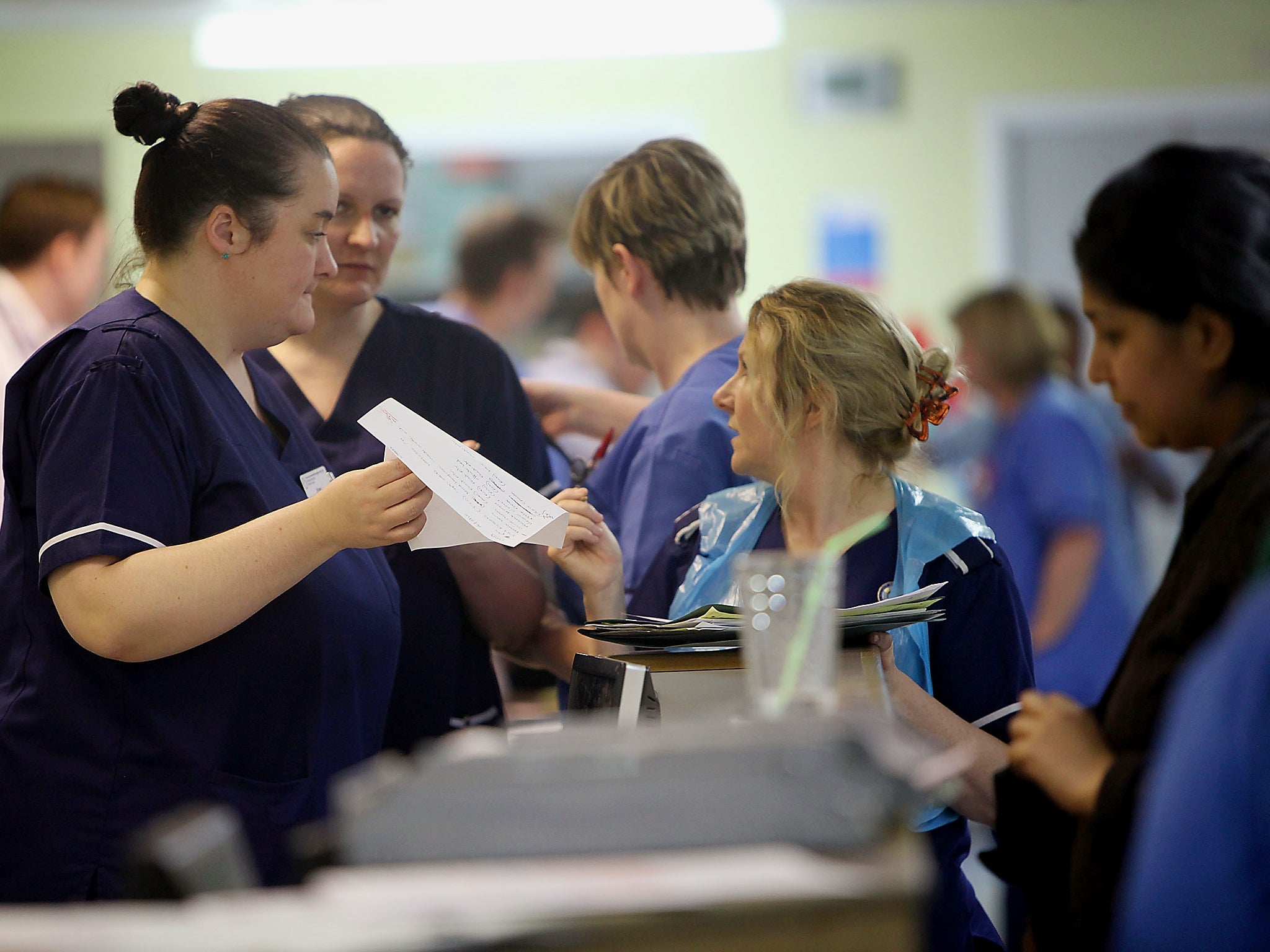NHS blames 'winter pressures' as trusts report deficit of £886m in nine months

NHS trusts have reported a deficit of £886m in the first nine months of the financial year and are likely to miss their overspend target, figures show.
While the sum owed by NHS trusts is down from the record overspend of £2.45bn in 2015/16, the health service is not on track to meet a year-end deficit target of £580m.
Some 135 out of 238 trusts were in deficit at the nine-month point, according to data from NHS Improvement.
The figures cover hospitals, ambulances, mental health units and community services, although most of the deficit was in hospitals.
NHS Improvement said trusts were experiencing “one of the most challenging winters on record due to a huge increase in the demand for urgent and emergency care”.
Some 5.34 million patients attended A&E between October and December, which is 200,000 more than the same period the previous year.
Hospitals saw a 3.5 per cent increase in the number of patients requiring major further in-hospital treatment.
“This intense demand for emergency treatment coupled with a significant reduction in bed availability has led to providers collectively underperforming against several key national healthcare standards, and having to postpone some planned care,” NHS Improvement said.
It said this was compounded by delayed discharges of people who were medically fit to leave hospital due to problems arranging social care.
The year-end forecast deficit for the NHS is now £873m.
The NHS Improvement report said despite extra effort “the current forecast deficit remains significantly higher than that planned. This is both unaffordable and unsustainable”.
Jim Mackey, chief executive of NHS Improvement, said: “NHS providers are treating more patients than ever before, which is a tribute to the hard work and commitment of their staff.
“But times are extremely challenging, and things are unlikely to get any easier in the short term.
“However, we're fully committed to helping providers improve their services for patients now and tomorrow.”
NHS Providers expressed concern that the latest figures rely heavily on one-off savings that cannot be made in the future.
A survey of 99 NHS finance directors released by NHS Providers shows that while most trusts were on or ahead of plan, just over a quarter (27 per cent) reported deteriorating finances.
Finance directors blamed a rise in A&E attendances and hospital admissions of 3.5 per cent against a plan of 2 per cent.
Two-thirds of trusts said they can only meet financial targets this year as a result of one-off savings, estimated to be as much as £1bn, which may not be achievable next year and beyond.
NHS Providers chief executive Chris Hopson said: “Despite doing everything they possibly can, NHS trusts are £300m behind the target of reducing the provider sector deficit to £580m by the end of March.
“This is largely because of winter pressures.
“Trusts spent more than they planned and they lost income from cancelled operations, both were needed to create the extra bed capacity to meet record emergency winter demand.
“This shows the danger of planning with no margin for unexpected extra demand.
“We can't expect to run NHS finances on wafer-thin margins year after year and keep getting away with it.
“Today's figures do show the considerable progress trusts have made this year to cut last year's record £2.45bn deficit.
“We estimate the year-end deficit will be somewhere between £750m and £900m.
“However, this will still need clinical commissioning groups (CCGs) to support trusts where necessary, such as using the money saved from cancelled operations.
“But we shouldn't kid ourselves. The NHS's underlying financial position is not sustainable.”
Niall Dickson, chief executive of the NHS Confederation which represents health service organisations across England, said: “This is a tragedy.
“The NHS had made huge strides to treat and care for patients promptly but the latest figures show a further deterioration and behind those figures lie real suffering for patients and exhausted staff.
“The danger now is that efforts to transform services that government has rightly been championing are derailed because of all the effort that has to go into keeping the service going and trying to balance the books.
“The immediate priority is additional funding for social care, this is a system that is letting down more than one million elderly people who are not receiving the support they need.
“The result is overstretched hospitals having to cope with too many admissions and too many patients unable to be discharged.
“There is a similar story in mental health, which has yet to see the benefit from warm words of support from national leaders.”
The financial position of NHS trusts this financial year would be far worse were it not for the £1.8bn sustainability and transformation fund.
The fund was set up to help deliver improvements in services and shore up NHS trusts financially but all the money has been used to plug deficits.
PA
Join our commenting forum
Join thought-provoking conversations, follow other Independent readers and see their replies
Comments
Bookmark popover
Removed from bookmarks